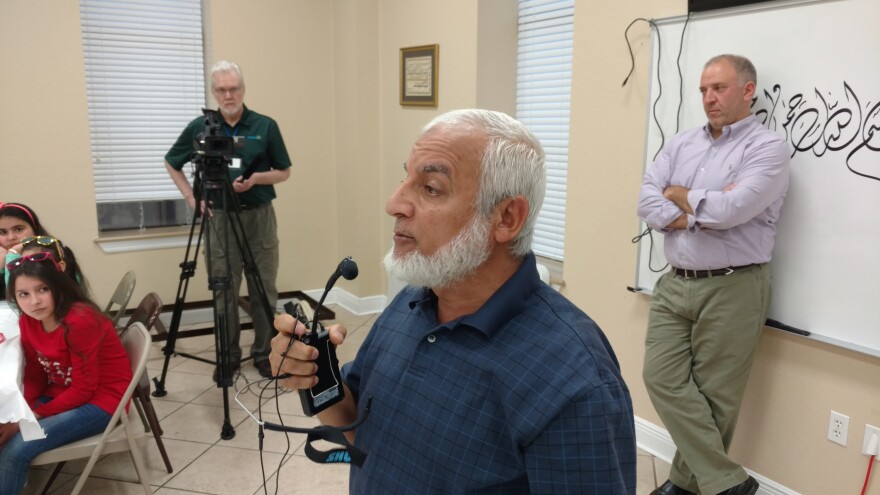Ramadan 2017 begins at sundown on Friday and will end at sundown on Sunday, June 25.
Ramadan is the ninth month of the Islamic calendar and is observed by Muslims worldwide as a month of fasting during the day, to commemorate the first revelation of the Quran to Muhammad according to Islamic belief.
“We fast in May or July; it depends on the [lunar] calendar,” said Hosny Ibrahim, the Imam at the Islamic Center of Northwest Florida in Pensacola.
“Our Quran and the Prophet Muhammed – peace be upon him – declared that when you see the moon in the beginning in the month of Ramadan, start to fast,” said Ibrahim. “And if you see the moon at the end of the month of Ramadan, stop your fasting.”
Like the Christian Easter, Ramadan moves around on the Gregorian calendar – which is based on the sun and largely used in the western world. The month of Ramadan is 29 or 30 days. Fasting is obligatory for most adult Muslims.

“It is a command of Allah,” Ibrahim said. “Muslims do not fast because of less of money or less of food, or poverty, no. Muslims fast because it is a command of God.”
There are exceptions. Muslims suffering from illness, who are traveling, who are elderly, pregnant, breastfeeding, diabetic or have other medical conditions, are released from the obligation at that time. Once they heal or get healthier, then they can abstain.
Fasting, says Ibrahim, is also considered a method of cleansing the body, the soul, and the heart.
“Allah mentioned in the Quran that fasting is prescribed on you, as it was prescribed on people before you, that you might carry ‘taqwa,’ which means ‘to fear God, to watch God,’” said Ibrahim.
It’s not only Muslims who are commanded to fast at certain times. Ibrahim says so are their ecumenical cousins in the other two major monotheistic religions.
“Jews were commanded to fast; Christians, they are commanded to fast, and Muslims likewise,” said Ibrahim. “It is not new innovation; it is not [a] new thing.”
In Christianity, fasting practices vary among denominations, with the base reason to gain deeper fellowship with God. Judaism prescribes abstinence during certain days, such as Yom Kippur -- the Day of Atonement.
Services in the mosque are virtually the same during Ramadan as they are at any other time of the year – the exception, says Ibrahim, is the offering of extra prayers. At the end of Ramadan on June 25, Muslims then break their daytime fast during Eid.
“Eid, or this holiday would please Allah and thank him for [the] opportunity to worship him,” said Imam Hosny Ibrahim. “We can eat, we can celebrate according to the command of Allah, and the command of the Prophet.”
Muslims continue to work during Ramadan, following the Prophet Muhammad’s instruction to keep a balance between worship and work. Common greetings are "Ramadan Mubarak" or "Ramadan Kareem" – both wishing the recipient a blessed or generous Ramadan.


